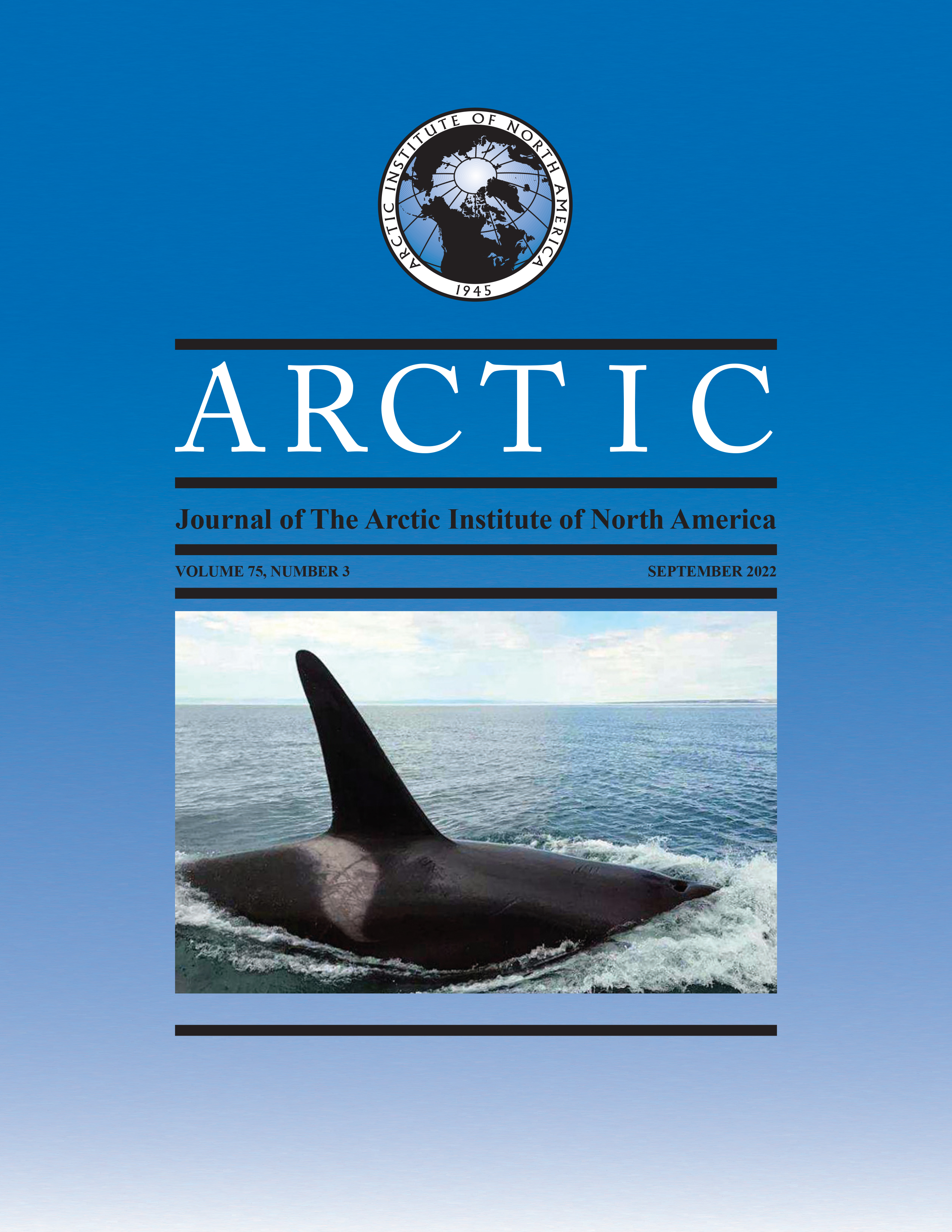Behaviors of High Arctic Wolves in Response to Humans
DOI:
https://doi.org/10.14430/arctic75966Keywords:
Arctic wolf; behavior; conservation; Greenland; Canadian Arctic Archipelago; conflict; hazing; dogsAbstract
This paper reports results of the first range-wide study of the behaviors of free-living wolves in the High Arctic in response to human presence and discusses these behaviors from a conservation perspective. The study focused on wolves believed to have had little, if any, contact with humans and excluded data from areas where wolves have become habituated to people. Data consisted of incidental sightings of wolves on the Canadian Arctic Archipelago and in Greenland from 1819 to 2019. A total of 325 behavioral observations were identified: 163 from Greenland and 162 from Canada. The most commonly reported behaviors (71.4%) involved wolves seeking out humans: coming to campsites, following traveling dog teams, closely approaching a person, and following people. These behaviors are not typical of canids in lower latitudes and have the potential to create conflicts with people who might feel threatened owing to the centuries-old belief that wolves are dangerous. Some Arctic wolves have been shot in perceived self-defense, when in all likelihood the animals were only curious. In addition, aggression directed towards domestic dogs was the most common form of wolf-dog interaction and produced another source of conflict. The findings are important from a conservation perspective because of the small wolf population and the fact that vanishing sea ice is increasing human access to the Arctic wolf range. Appropriate and humanely used hazing techniques and outreach to stakeholders on what constitutes normal Arctic wolf behavior can mitigate the risk of conflict and contribute to the conservation of Arctic wolves on the Canadian Arctic Archipelago and in Greenland, while minimizing the risk that the natural behavior of this subspecies is altered by increased human activity.
Downloads
Published
Issue
Section
License
Copyright (c) 2022 ARCTIC

This work is licensed under a Creative Commons Attribution 4.0 International License.


